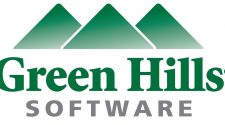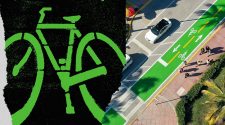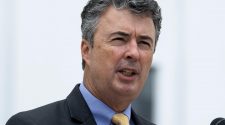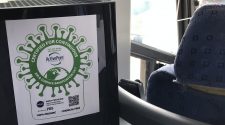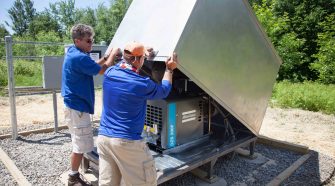An Uber driver in a surgical mask is seen in a mirror in the Manhattan borough, following the outbreak of coronavirus in New York City. (REUTERS/Jeenah Moon)
Ctrl + N
Gig workers are calling on food delivery and ride-hailing apps to make it easier for them to access the temporary benefits the companies promised in response to the coronavirus crisis.
One big way to do that, they say, is through telemedicine: Allowing gig workers access to virtual doctors’ appointments will help keep potentially sick drivers off the road.
“We know drivers will get sick,” Brendan Sexton, executive director of Independent Drivers Guild, said in a statement. IDG represents drivers in New York. “Uber, Lyft and Via must work with us to ensure these drivers have the ability to stay home.”
Uber and Lyft have promised temporary financial assistance to any driver diagnosed with covid-19 or is asked to quarantine by a public health authority because of possible exposure.
But to apply, gig workers need to see a doctor. While Congress passed legislation yesterday to guarantee free testing to all Americans, many locations still lack testing capacity and public health officials have advised against crowding hospitals and emergency rooms where the uninsured are most likely to turn.
Drivers, many of whom lack insurance and already live paycheck to paycheck, are “more likely to see a doctor when they can do it from their phones,” IDG spokesperson Moira Muntz tells me. So virtual visits are an efficient way to limit the time drivers have to take off and make sure they actually see a doctor.
“Those companies need a way to know if drivers need to stay home or not, and testing isn’t available for everyone in New York,” said Andrew Greenblatt, executive director of IDG Benefits Fund, the nonprofit that arranges benefits for IDG members.
IDG’s members already receive free telemedicine benefits through a partnership with the Black Car Fund, a nonprofit created by New York state to provide workers’ compensation insurance to black car and luxury limousine drivers.
The group says it’s working with the companies to guarantee within days that they will approve benefits for drivers who have doctors’ notes from telemedicine visits, Greenblatt says. IDG is also asking the companies to better advertise the telemedicine benefits to drivers within New York. IDG is also urging lawmakers in New Jersey and Connecticut to fund an expansion of telemedicine to cover drivers for ride-hailing apps.
Uber said it couldn’t comment on discussions with IDG but confirmed it would accept a qualifying doctor’s note resulting from a telemedicine appointment.
But the telemedicine push for drivers highlights the gap in benefits between gig workers and full-time corporate employees at the apps. Uber does not currently have plans to offer telemedicine benefits to drivers directly, spokesman Matthew Wing told me, though it’s a benefit the company does offer its corporate employees.
Lyft declined to answer questions about what it was doing to help connect drivers with testing for the virus or whether it would explicitly accept telemedicine doctors’ notes to qualify for its temporary benefits. And Via, which operates in New York, has no policies to aid sick workers, including temporary financial assistance with a doctor’s note, IDG says.
Drivers for Amazon Flex and Postmates have reported similar confusion on how to access funds those companies launched to help gig workers after the outbreak. Amazon declined to say whether it would provide assistance to help Flex workers get tested for the virus — including whether it would offer them its in-house telemedicine services offered to corporate employees. It has yet to begin distributing funding. (Amazon CEO Jeff Bezos owns The Washington Post.)
The pressure on the companies to increase benefits for gig workers is only likely to increase as the pandemic spreads. As cities limit in-person gatherings and cut back on public transportation, gig workers are in high demand. They’re picking up delivery orders and groceries for those who are quarantined or do not want to risk exposure to the virus. And while both Uber and Lyft have suspended shared rides to limit exposure, drivers are considered an essential service in many cities where passengers can still order the services to go to hospitals and clinics.
This is likely to increase the spotlight on telemedicine, which is “doctors’ first line of defense to slow the spread of the coronavirus,” my colleagues Geoffrey A. Fowler and Laure McGinley report. The Centers for Disease Control and Prevention and the White House have both stressed the importance of telemedicine in preventing hospitals from becoming overwhelmed and exposing more individuals to the virus.
The bureaucratic obstacles to accessing the new paid sick funds highlights that the companies’ near-term efforts aren’t enough, Rideshare Drivers United organizer and part-time Lyft driver Nicole Moore told me.
“Our misclassification as independent contractors has become a public-health issue,” she said, calling the funds recently offered by the companies a “Band-Aid.”
Rideshare Drivers United, which represents more than 10,000 drivers in California, is pushing for the state to step in and enforce a law they say entitles drivers to paid sick leave, benefits and other unemployment protections under a state worker classification law that went into effect earlier this year. In addition to a petition released early this week, the group will host coordinated rallies in San Francisco, Los Angeles and San Diego today to push for benefits enforcement.
Gig-worker groups have also lobbied lawmakers to include them in relief packages targeted at helping the broader American workforce — something that Uber said it supports.
In the meantime, Greenblatt was more hopeful that organizations such as his could help gig workers deal with the effects of the pandemic, including working on loan programs to help with sinking wages.
“Telemedicine is the tip of the spear here,” he told me. “We’re going to do a lot more for drivers in the next few months.”
BITS, NIBBLES AND BYTES
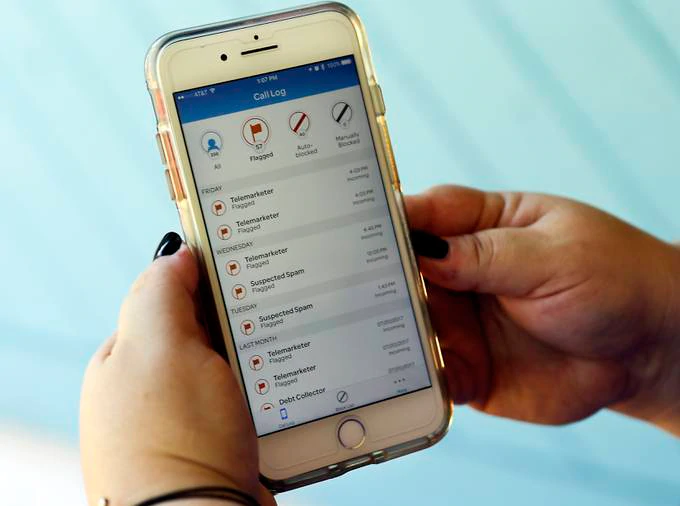
This Aug. 1, 2017, file photo, shows a call log displayed via an AT&T app on a cellphone in Orlando, Fla. (AP Photo/John Raoux, File)
BITS: Fraudsters are using coronavirus-themed robocalls to prey on vulnerable Americans during the deadly outbreak, my colleague Tony Romm reports. There have been more than a million suspicious calls about the virus every day for the past week, according to robocall blocking app YouMail.
The scams primarily target elderly Americans who are most vulnerable to the disease and probably already dealing with preexisting ailments. One robocall identified by YouMail tried to lure in diabetics by offering them a free testing monitor alongside an at-home coronavirus testing kit — something that doesn’t exist. Another told callers they were eligible free testing kits under the recently passed Families First Coronavirus Response Act.
“That can actually kill somebody,” said Alex Quilici, the chief executive of YouMail, told Tony. “This isn’t an annoyance. It’s become really dangerous.”
Tony was unable to reach the numbers behind the calls.
USTelecom, a trade group for the industry, is investigating to uncover the origins of the campaigns related to testing, spokesman Brian Weiss told Tony. The Federal Communications Commission declined to comment on whether it has opened a probe.
Scammers have also targeted Americans via text message, email and social media sites. Some of the efforts are aimed at stealing Americans’ personal data while others have spread harmful misinformation about the outbreak, prompting a response from intelligence officials. Attorney General William P. Barr recently recommended the U.S. attorneys prioritize the prosecution of coronavirus-related cyberattacks and scams.
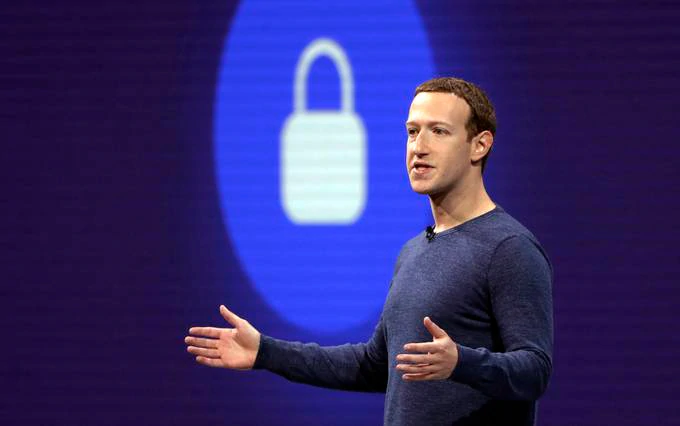
Facebook CEO Mark Zuckerberg (AP Photo/Marcio Jose Sanchez, File)
NIBBLES: Facebook will roll out a new coronavirus information center for the top of users’ Facebook news feeds, chief executive Mark Zuckerberg announced yesterday. The new feature adds to the company’s efforts to combat falsehoods and inform users during the public-health crisis, my colleague Elizabeth Dwoskin reports.
“The top priority and focus for us has been making sure people can get access to good information and trusted sources during the pandemic,” Zuckerberg said in a call with reporters
The pandemic has magnified Facebook’s struggles to stop misinformation across its main platform, as well as Instagram and WhatsApp, an encrypted messaging platform that has become a hotbed for misinformation about the virus. Unlike its approach to political speech, the company has taken a heavy-handed approach to pandemic-related content.
“Even in the most free expression-friendly traditions, like the United States, there’s a precedent that you don’t allow people to yell fire in a crowded room,” Zuckerberg said on the call about the approach.
Twitter also updated its moderation policies to remove more harmful tweets about coronavirus, including tweets that deny or go against recommendations from global and local health authorities. It will also claims meant to incite panic or cause social unrest. Claims that specific groups and nationalities are more susceptible to covid-19 will also be removed.
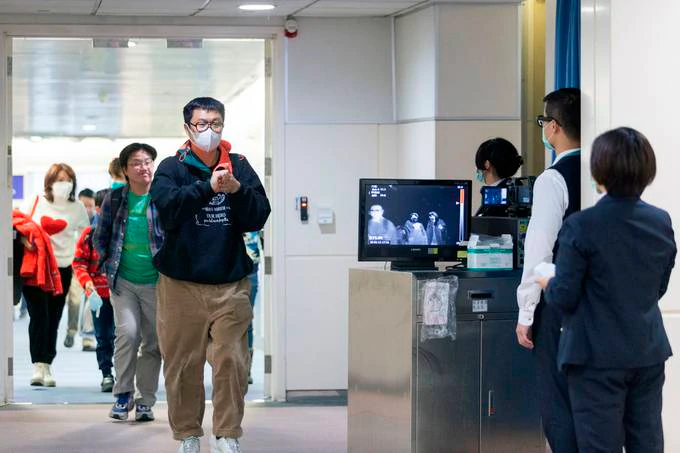
This picture taken on January 13, 2020 shows Taiwan’s Center for Disease Control (CDC) personnel (R) using thermal scanners to screen passengers arriving on a flight from China’s Wuhan province. (Photo by CHEN CHI-CHUAN/AFP via Getty Images)
BYTES: Governments in Asia are taking lessons from past pandemics to hit the region and employing sophisticated tracking technologies to monitor and prevent the spread of the disease, my colleagues Shibana Mahtani and Simon Denyer report. Some experts are urging the United States to take similar steps, despite privacy concerns.
For instance, Singapore has tracked citizens using real-time location data from their digital wallets — fining those who are caught lying about their movements. South Korea, Taiwan and Hong Kong have enforced similar location tracking measures via smartphone with similar threats of police intervention if infected people don’t comply with quarantines. Local populations who lived through previous pandemics largely support the measures, my colleagues report.
Health experts say it works: a study by Harvard’s Center for Communicable Disease Dynamics found that Singapore was 2.5 times more likely to detect infected people than because of “very strong epidemiological surveillance and contact-tracing capacity.” Experts agree that Western governments must be prepared to limit their citizens’ movements, including tracking contacts regardless of privacy concerns, my colleagues report.
“This is the process it will take to save thousands of American and European lives, billions of dollars of the economy, your own businesses,” said Dale Fisher, a professor in infectious diseases at the National University of Singapore who also chairs the World Health Organization’s Global Outbreak Alert and Response Network. “Otherwise, it is just carnage.”
PUBLIC CLOUD

Sundar Pichai, chief executive officer of Google Inc., speaks during a House Judiciary Committee hearing in Washington, D.C., U.S., on Tuesday, Dec. 11, 2018. Photographer: Andrew Harrer/Bloomberg
– Senate Democrats worry Google’s health division won’t do enough to protect patient data collected through its new tool to scan for coronavirus symptoms, my colleague Tony Romm reports. They want to know what the White House and Google have done to vet the project for problems that could damage the security and privacy of millions of Americans, they say.
“If Google and its subsidiaries fail to establish sufficient privacy safeguards, Americans who use the site will be more susceptible to identity theft, negative credit decisions, and employment discrimination,” the group, led by New Jersey Democratic Sens. Bob Menendez and Cory Booker, wrote to Google CEO Sundar Pichai. The letter cited recent data breaches, including those at medical companies Quest Diagnostics and LabCorp.
Google and the White House did not immediately respond to a request for comment. Patients must use or create Google accounts to use the free tool. But Verily, the Alphabet subsidiary running the project, said in a blog post that data from the site will not be combined with an individual’s Google account — an issue that sparked early privacy concerns. Right now, the tool is only available in California and Verily has not announced a nationwide launch date.
— More news from the public sector:
PRIVATE CLOUD
— News from the private sector:
#TRENDING
—Tech news trending around the web:

The pandemic has clarified the dark bargain of our internet-connected devices: We look to them to protect our bodies and soothe our nerves, and in return, we hand over our minds.
The New York Times
WIRED IN
The economic effects of coronavirus are particularly acute for those who cannot work from home and are afforded few protections, such as paid sick leave. (James Pace-Cornsilk, Jonathan Baran/The Washington Post)



